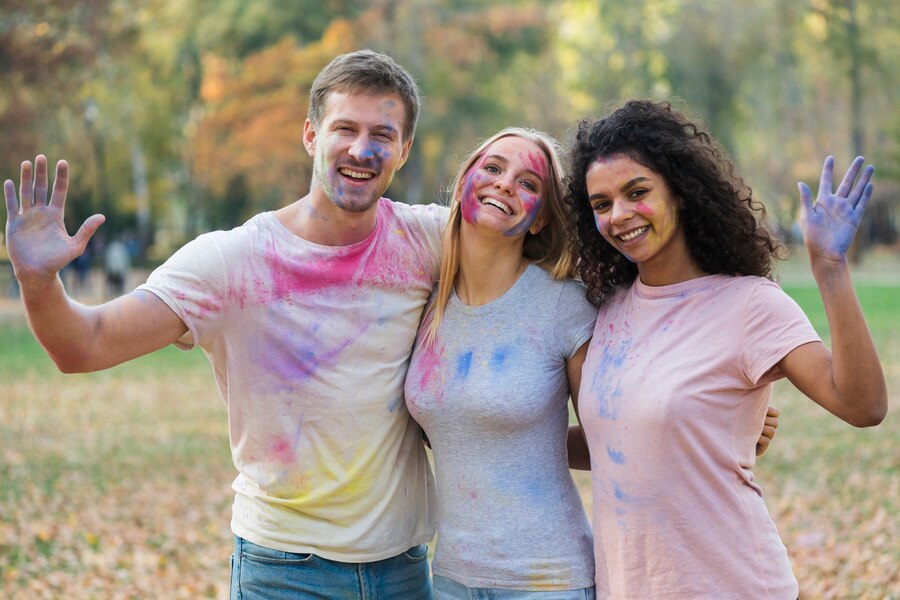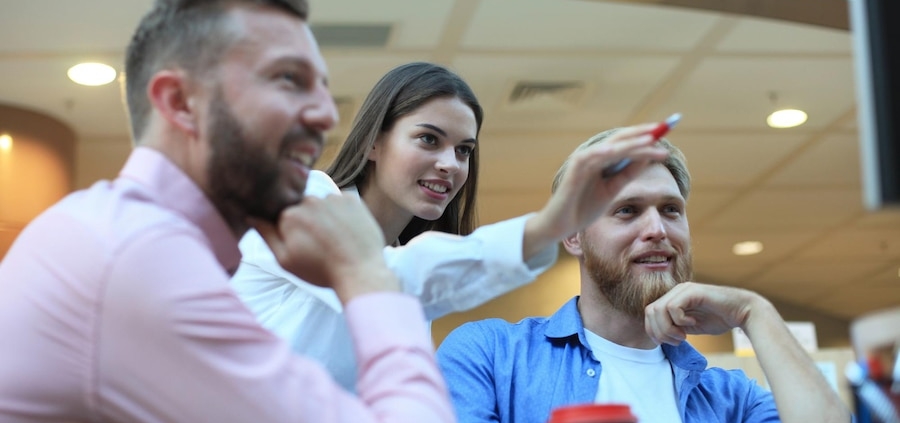In the journey of recovery from addiction, the support and understanding of loved ones can be an invaluable asset. For couples facing the trials of addiction together, the path to healing is uniquely challenging yet profoundly transformative. National Recovery Month, observed every September, shines a spotlight on the various facets of recovery, including the often-overlooked dynamic of couples healing together. One of the most significant aspects of this celebration is the recognition of couples rehab facilities, where partners can embark on their recovery journey side by side, fostering mutual support and understanding.
Couples rehab programs offer a holistic approach to addiction treatment, addressing not only the individual needs of each partner but also the dynamics of their relationship. By focusing on both personal and relational healing, these programs aim to create a stronger foundation for long-term recovery. This approach acknowledges that addiction is rarely an isolated issue; it often affects and is affected by the relationships closest to the individual.
Throughout National Recovery Month, various events celebrate the successes and ongoing efforts of couples in rehab. These events play a crucial role in highlighting the importance of shared recovery journeys, offering inspiration and hope to those still struggling. From workshops and seminars to support group meetings and recreational activities, these events provide couples with tools, knowledge, and a sense of community.
In this article, we will explore the significance of couples rehab in the broader context of national recovery efforts. We will delve into the specific events that celebrate and support couples healing together, examining how these activities contribute to stronger relationships, a supportive community, and sustained sobriety. Through case studies and success stories, we will shed light on the transformative power of shared recovery and the enduring impact of celebratory events in couples rehab.
I. Importance of Couples Rehab in National Recovery
Couples rehab plays a crucial role in the broader landscape of national recovery efforts. As the country continues to grapple with the pervasive issues of addiction, addressing the unique needs of couples can significantly enhance the effectiveness of treatment and long-term recovery. Understanding addiction as a shared struggle, recognizing the benefits of healing together, and learning from case studies and success stories underscore the multifaceted importance of couples rehab in national recovery.
A. Understanding Addiction as a Shared Struggle
Addiction often impacts not just the individual but also their close relationships, particularly romantic partnerships. In many cases, partners may either share the addiction or become enmeshed in a cycle of co-dependency and enabling behaviors. Recognizing addiction as a shared struggle is the first step toward effective treatment. Couples rehab programs are designed to address both partners’ needs simultaneously, offering a more comprehensive approach to recovery that considers the relational dynamics at play. This holistic perspective ensures that the root causes of addiction are addressed in the context of the relationship, fostering a more supportive and understanding environment for both individuals.
B. Benefits of Healing Together
Healing together can offer several distinct advantages over individual treatment. When couples enter rehab together, they can provide mutual support and motivation, which can be particularly beneficial during the challenging initial phases of recovery. Shared experiences in therapy and counseling sessions can lead to a deeper understanding of each other’s struggles and foster empathy and compassion. Additionally, couples rehab can help partners develop healthier communication skills, resolve conflicts, and rebuild trust—elements that are essential for sustaining long-term sobriety and a harmonious relationship. By addressing the relationship as a unit, couples rehab can create a stronger foundation for both partners to thrive in their recovery journey.
C. Case Studies and Success Stories
The effectiveness of couples rehab is underscored by numerous case studies and success stories. For example, consider a couple who had been battling addiction for years. Through a structured couples rehab program, they were able to confront their issues together, undergo therapy, and participate in joint activities that reinforced their commitment to sobriety. Their story is just one of many that illustrate how couples rehab can transform lives, not just by helping individuals overcome addiction but by strengthening their relationships in the process. These success stories serve as powerful testimonials to the efficacy of couples rehab, inspiring other couples to seek similar paths to recovery.
In conclusion, the importance of couples rehab in national recovery cannot be overstated. By understanding addiction as a shared struggle, recognizing the benefits of healing together, and learning from real-life success stories, couples rehab offers a unique and effective approach to overcoming addiction. As more couples embrace this form of treatment, the positive ripple effects will contribute significantly to broader national recovery efforts, fostering healthier relationships and communities across the country.
II. Events Celebrated at Couples Rehab
In the journey of recovery, shared experiences and collective healing can significantly enhance the success rates for couples undergoing rehab. Couples rehab centers recognize this and organize a myriad of events designed to foster connection, understanding, and mutual support. These events not only provide essential tools for overcoming addiction but also create a sense of community and celebration that reinforces the recovery process.
A. Workshops and Seminars
Workshops and seminars are a cornerstone of the events celebrated at couples rehab centers. These educational sessions are tailored to address the unique challenges faced by couples dealing with addiction. Topics often include communication skills, conflict resolution, and understanding the psychological aspects of addiction. Facilitated by experienced therapists and addiction specialists, these workshops provide couples with practical strategies and insights that empower them to support each other more effectively.
Interactive components, such as role-playing exercises and group discussions, encourage active participation and allow couples to practice new skills in a safe and supportive environment. By gaining a deeper understanding of their own behaviors and those of their partner, couples can work together to develop healthier patterns and strengthen their relationship.
B. Support Group Meetings
Support group meetings offer a platform for couples to share their experiences, challenges, and triumphs with others who are on a similar journey. These meetings are typically led by trained facilitators and provide a confidential space where couples can express their feelings and receive encouragement from peers.
The sense of camaraderie and mutual understanding that develops in these groups can be incredibly powerful. Hearing about the progress and setbacks of others helps couples feel less isolated and more hopeful about their own recovery. Additionally, support group meetings often foster long-lasting friendships and networks of support that extend beyond the rehab center, providing ongoing encouragement and accountability.
C. Recreational and Bonding Activities
Recovery is not solely about addressing addiction; it is also about rediscovering joy and building a fulfilling life together. Recreational and bonding activities play a crucial role in this aspect of couples rehab. These activities are designed to help couples reconnect and enjoy each other’s company in a sober and positive context.
Common recreational activities include outdoor adventures like hiking, kayaking, and team-building exercises, as well as creative pursuits such as art therapy, music sessions, and cooking classes. These activities not only provide a break from the intensity of therapy but also help couples discover new interests and hobbies that they can enjoy together.
Bonding activities are specifically designed to enhance emotional intimacy and trust. Couples may participate in yoga and meditation sessions, trust-building exercises, and guided relationship workshops. These experiences encourage couples to open up to each other, share their vulnerabilities, and build a stronger emotional connection.
In summary, the events celebrated at couples rehab are integral to the healing process. By participating in workshops and seminars, support group meetings, and recreational and bonding activities, couples can develop the skills and connections needed to support their recovery journey. These events not only address the complexities of addiction but also celebrate the strength and resilience of couples who are committed to healing together.

III. Impact of Celebratory Events on Recovery
Celebratory events play a pivotal role in the recovery process for couples undergoing rehabilitation. These events serve not only as milestones marking their progress but also as crucial components that enhance their journey towards sobriety. The impact of these celebratory events on recovery can be understood through several key aspects:
A. Strengthening Relationship Bonds
One of the most significant impacts of celebratory events is the strengthening of relationship bonds. Addiction often strains relationships, creating a rift between partners. Celebratory events, such as anniversaries of sobriety or completion of a rehab program, offer couples the opportunity to reflect on their journey and appreciate the progress they have made together. These moments of celebration help rekindle emotional connections, foster mutual respect, and reinforce the commitment to support each other. By celebrating their shared milestones, couples are reminded of their collective strength and resilience, which is crucial for sustaining long-term recovery.
B. Building a Supportive Community
Celebratory events at couples rehab centers also play a crucial role in building a supportive community. These events bring together couples who are on similar journeys, creating a sense of camaraderie and shared understanding. Through communal celebrations, couples can share their experiences, offer encouragement, and learn from one another. This sense of belonging to a community that understands their struggles and triumphs can be incredibly empowering. It helps to reduce feelings of isolation and provides a network of support that extends beyond the confines of the rehab center. In many cases, the friendships formed during these celebratory events continue to provide emotional and practical support long after the rehab program has ended.
C. Encouraging Long-term Sobriety
Celebratory events serve as powerful motivators for couples to maintain their sobriety. The positive reinforcement received during these events, whether through recognition, awards, or simply the joyous atmosphere, boosts the morale of the recovering individuals. These celebrations act as tangible reminders of the benefits of sobriety, reinforcing the idea that their hard work is yielding positive results. Moreover, looking forward to future celebratory events can provide couples with goals to strive towards, thus fostering a sense of purpose and direction in their recovery journey. The anticipation of sharing future milestones with their partner and the community can be a compelling incentive to stay committed to sobriety.
In summary, celebratory events at couples rehab centers have a profound impact on the recovery process. By strengthening relationship bonds, building a supportive community, and encouraging long-term sobriety, these events contribute significantly to the healing and growth of couples as they navigate the challenges of addiction recovery together.












